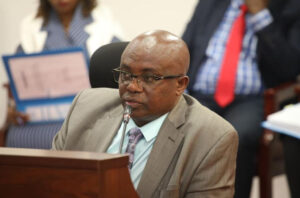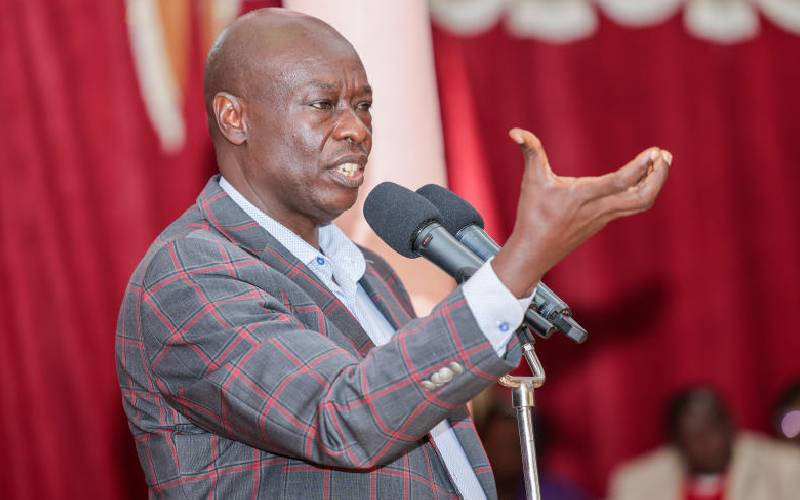Patients in public hospitals will no longer be permitted to share beds, Health Cabinet Secretary Aden Duale has announced.
During an event in Nakuru County on Wednesday, where he launched Taifa Care, the government’s universal healthcare scheme, Duale introduced a one-patient-one-bed policy aimed at reducing congestion in public healthcare facilities.
He emphasised that no hospital would be allowed to exceed its bed capacity.
“Patients will no longer share beds. We are working to transform Kenya’s health sector, including ensuring the efficiency of the SHA system,” Duale stated.
He explained that under the defunct National Health Insurance Fund (NHIF), many Kenyans shared beds, which hospitals exploited to claim funds unjustly.
“Kenyans used to sleep on the ground, but hospitals charged for beds. When three patients shared a bed, hospitals took advantage and billed for three beds,” he added.
Duale also mentioned that over 1,058 facilities that defaulted on regulations had been closed.
He stated that unregistered pharmacists would not be allowed to sell medicines, reinforcing, “We will not allow mistreatment of Kenyan patients. Starting next week, if you are not a pharmacist, you won’t be able to distribute or sell medicine.”
His comments have raised concerns about how hospitals would manage the influx of patients, particularly in Nakuru, which is facing a significant healthcare crisis.
The Nakuru Level V Hospital (PGH) has a total of 588 inpatient beds and 68 baby cots, but no designated isolation or emergency beds.
PGH Annex has 60 inpatient beds and 22 baby cots, while Subukia Hospital is set to add 48 inpatient beds.
The Margaret Kenyatta Mother-Baby Unit, with a capacity of 240 beds, specialises in maternal and newborn care.
Several hospitals in Nakuru have been shut down, including Mediheal Hospital, which was closed last year and had a capacity of 120 beds, and War Memorial Hospital, which was shut down by the county government on January 23, 2024, with a capacity of 36 beds.
An April 2025 report indicated that the Level V facitity was experiencing significant issues with bed capacity, particularly in its intensive care unit (ICU) and maternity wing.
The report highlighted that the hospital serves as a referral center for the Rift Valley region but faces high patient volumes and staff shortages, leading to overcrowding and challenges in providing adequate care.
Stay informed. Subscribe to our newsletter
According to the report from the Department of Health, the Level V hospital has only six ICU beds, while the ideal capacity is 20, putting additional strain on emergency services.
The maternity wing has seen mothers sharing beds, and overcrowding in general wards has led to early patient discharges.
Joseph, a patient from Solai, shared his experience of having to sleep in a bed with another patient.
He noted that the chaotic environment sometimes resulted in neglect by healthcare practitioners.
“They cannot serve all the patients in the hospital. We have heard that the government wants to ensure every patient sleeps in their own bed; we hope this can be achieved,” he said.
The hospital serves patients from Nakuru, Bomet, Kericho, Samburu, Baringo, Nyandarua, and Laikipia, treating at least 2,000 patients daily, with over 750 being inpatients.
This situation comes amid reports that three hospitals risk losing their land to grabbers, as it has been revealed that they lack ownership documents.
Different reports submitted to the County Assembly indicate that PGH Annex, Naivasha Sub-County Hospital, and Elburgon Sub-County Hospital in Molo are at risk.
The reports show that large areas once designated for public use or currently utilised by the public have been transferred to private ownership.

























